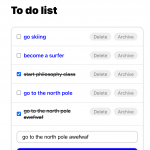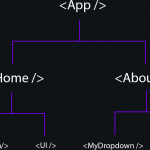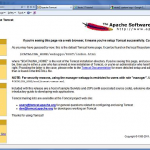当我们在Vue中使用组件时,我们经常使用属性或道具将自定义的数据块向下传递给子组件。例如,我们可以告诉我们的子组件,对于这个版本的组件,“name”被设置为“my-component”:
<Component name="my-component" />
如果我们尝试在没有nameprops 的情况下调用这个组件,它会undefined在代码中返回,或者在 HTML 中呈现时就像没有文本一样。假设我们的Component外观是这样的:
<script>
export default {
props: {
name: String
},
mounted() {
console.log(this.name);
}
}
</script>
<template>
<p>
Hi
</p>
</template>
我们的组件所做的只是定义了一个名为nametype的 prop String,控制台会记录这个属性。它还在表单中显示它Hi 。这里唯一的问题是,如果name在调用组件时未定义,则没有给出默认名称。
在 Vue 中设置默认属性值#
在 Vue 中设置默认属性值很容易。如果您使用的是Options API,那么就像将我们的属性扩展到一个对象一样简单。例如,如果我们希望我们name的默认值是“ there ”,那么我们将我们的 prop 更新为如下所示:
export default {
props: {
name: {
type: String,
default: "there"
}
},
mounted() {
console.log(this.name);
}
}
现在,如果没有给出名字,消息会简单地说“你好”
在 Composition API 中设置默认道具值#
在组合 API 中,定义道具使用该defineProps函数。此函数遵循与 Options API 上定义的 props 相同的语法。定义没有默认值的 prop 如下所示:
import { defineProps } from 'vue';
const props = defineProps({
name: String
});
然后添加一个默认值,我们扩展name为有一个默认属性,就像以前一样:
import { defineProps } from 'vue';
const props = defineProps({
name: {
type: String,
default: "there"
}
});
在 Vue 中根据需要设置一个 Prop#
为了避免需要在属性上设置默认值,我们可以通过使用required字段来强制要求属性。例如,如果我们想要name定义我们的属性,我们只需设置required为true:
<script setup>
import { defineProps } from 'vue';
const props = defineProps({
name: {
type: String,
required: true
}
});
</script>



